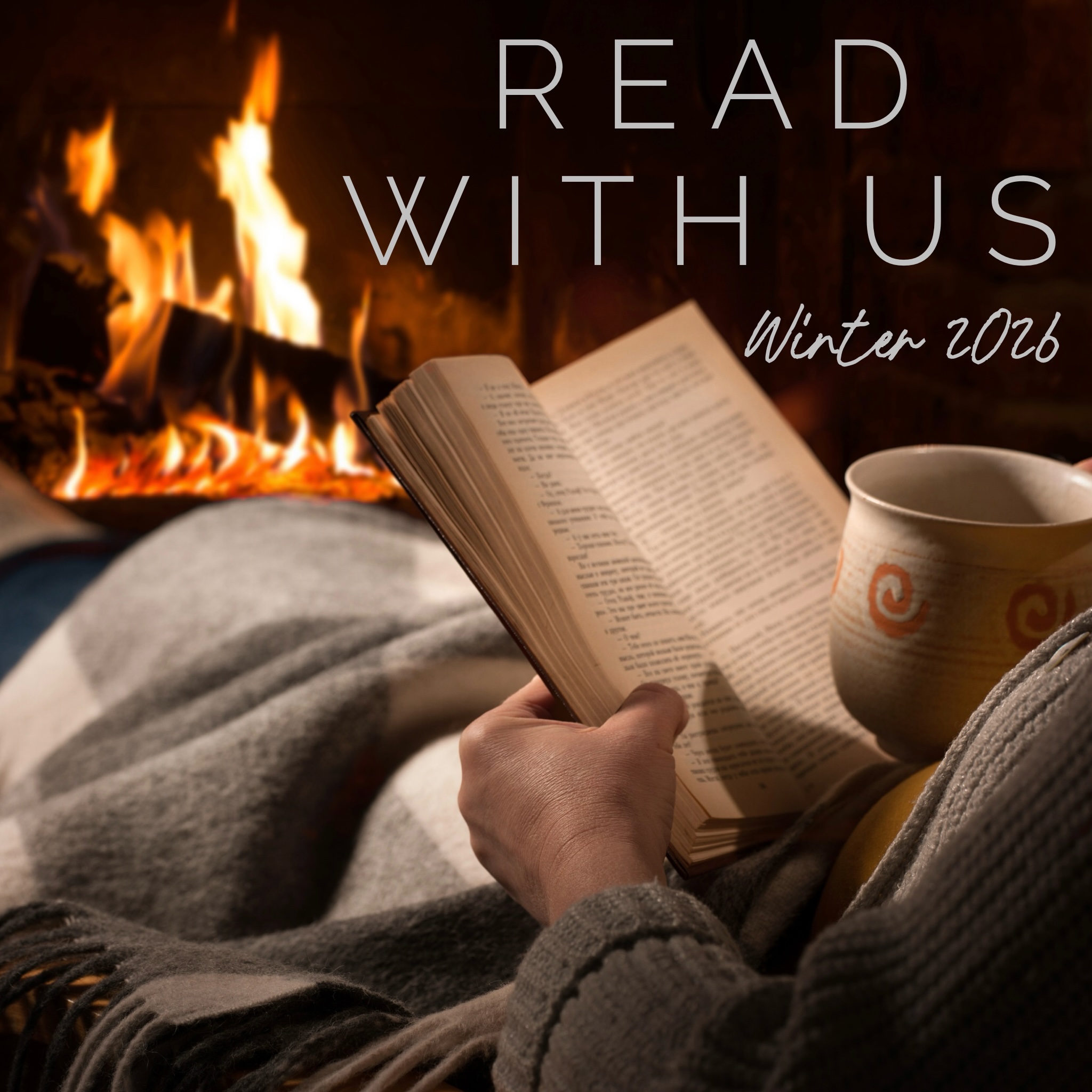
Welcome to Read With Us Discussion Day!
Bonny and Carole and I are posting our discussion question today about our latest RWU book . . . Sorrow and Bliss by Meg Mason. Join the discussion (which you’re welcome do even if you didn’t read the book) by commenting on our blogs. I’ll be answering your posts within the comment section for this discussion — and you can comment on other people’s comments, as well. Y’know . . . like in a real book group.
Let’s begin!

First . . . I’d really like to know what you thought of the book. Did you like it? What did you like best (or least!) about the book?
Second . . . As I read Sorrow and Bliss, I really enjoyed the relationships author Meg Mason created between (often-unlikeable) Martha and the people who loved her: Patrick, Ingrid, her father, and Peregrine, for example. The relationships seemed very genuine and relatable to me, and I think this may have been because Mason chose to frame the relationships through ordinary conversations while the characters were performing everyday actions (driving somewhere, for example, or eating dinner together; sharing a bottle of wine, taking a walk). What do you think? Did these relationships seem genuine to you? Why or why not?
Third . . . Would you describe Sorrow and Bliss as having a “happy ending?” Whether you did or didn’t, were you satisfied with the way it ended?
I can’t wait to hear what you think!
==
Don’t forget: We’ll be discussing the book on Zoom tonight – 7:00 pm Eastern Time. There’s still time for you to join us! Just let me know of your interest either with a comment or by sending me an email (see sidebar, above) — and I’ll send a Zoom invitation.
PS – If you are planning to join us on the Zoom, but haven’t received an invitation from me (I sent them yesterday), please let me know so I can get the Zoom link to you today.




I liked this book very much! And as I said on Carole’s blog… I found the characters very believable… and likable… even Martha! Ha!
What I did not like was “X” and I have thought about this frequently but I am not sure how to have done an “unnamed” mental illness. But still… it was very off putting, especially the conversations about “X”.
I don’t know as I would call the ending happy… but I think the ending was very good. (now I am going to go back and read the ending again before tonight! Ha!)
I actually re-read the book over the weekend, because it has been so long since I first read it. (This time I did the audio version, where the first time around I read the book-book.) Y’know . . . I liked it even MORE the second time through, and I’m really happy I did the re-read.
Anyway, I never have a problem with ambiguity in books (or . . . rarely), so the “—“ (or “X” in the audio version) didn’t bother me at all. In fact, I found it really refreshing! No labels meant no assumptions on my part, and I could just roll with the fact that . . . Martha was suffering.
I really liked all the characters – even Martha! – and found their relationships really “worked” (even when they didn’t). And I agree — I didn’t find the ending “happy”, exactly, but I did find it hopeful. I was pleased that Patrick was not going to “fix” all the problems, but that, perhaps, he and Martha could work on things together. I also thought it was a realistic ending, with Martha ready to figure things out for herself, now that she had an accurate diagnosis and the right meds.
I enjoyed the book, and some of the things I liked the most were Martha and Ingrid’s relationship and the way the book felt after Martha’s therapist mentioned X. I felt like I could relate to her sense of relief and how her life might begin to change. I liked how Mason set the book in “vignettes”, with the characters doing everyday things. This helped me to see the relationships as genuine. I’m not sure I’d classify the ending as happy, but it struck me as realistic, and that is just as good!
I very much agree, Bonny. I loved the “everyday-ness” of Martha’s relationship with Ingrid – and Patrick, too. And I especially liked the supportive presence of Martha’s dad. Although Martha had a lot of support systems/people in her life, it still wasn’t “enough” . . . and when things really fell apart for her, I thought the relationships were genuine and realistic then, too.
I thought the ending was not really “happy,” but “hopeful.” After 40 years of not knowing what was happening, I was hopeful that Martha would be able to figure out a way to move herself forward, armed with a diagnosis that made sense — and proper meds.
Looking forward to our discussion tonight (I’ll save my comments till then). See you at 7!
Can’t wait, Vera!
I loved the book the first time I read it (on audio) and when I reread it with my eyes. I thought it was both hilarious and touching, and I thought the characters were brilliantly written. I think how the story was presented was a bit part of why the book felt so real to me — for most of us, life isn’t about big, dramatic events but rather everyday moments. I’m not sure I’d call the ending a happy ending, but I did feel it was a hopeful one.
I just re-read the book over the weekend (I did it in the opposite order from you: I read the book-book first, and listened the second), and I enjoyed it even MORE the second go-round. I completely agree with you, Sarah. I think the “everyday moments” helped us “see” the characters and their relationships to each other so clearly. And . . . I thought the ending was “hopeful,” too. Which (to me) is pretty much the best you can get in “real life.”
If it’s not too late please do send me an invitation. Thanks!
Sent, Margene! So glad you’ll be able to join us.
I was satisfied with the ending and I felt it was realistic. Martha and her family will continue to cope with her illness, there will be ups and downs, but her new self knowledge empowers her to take a more active role in managing her illness and her openness with her family enables them to offer more meaningful support for her.
I look forward to our discussion!
That’s just how I felt, Debbie. It seems like finally, after 40 years of wandering in the wilderness, Martha will have the knowledge (and appropriate medication) she needs to help her move forward in putting her life together. And that seems to be as hopeful an ending as possible!
I read the book earlier this summer and I liked it, probably my rating of 3 stars. Martha frustrated me but I really liked Patrick. Martha’s family was supportive and it just seemed like Martha was sometimes her own worst enemy though it was the mental illness.
Yes! Martha was definitely not helping herself . . . although I’d guess a lot of that was her mental illness, and then dealing with all the “stuff” of 40-years-of-suffering once she got a diagnosis that made sense. I re-read the book before the Zoom discussion last night, and discovered I liked the book even more the second time I read it! Thanks so much for reading with us!